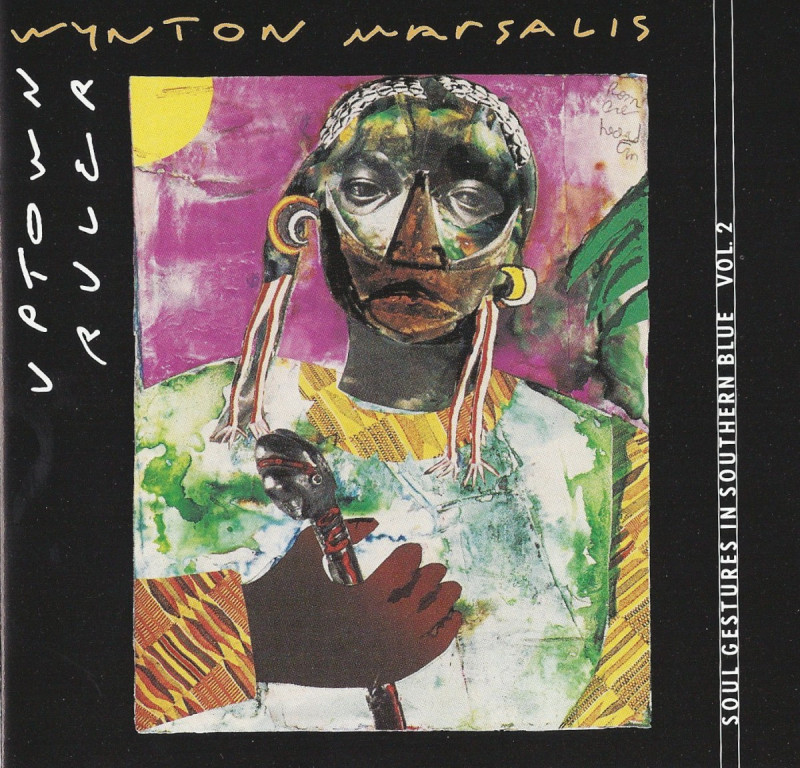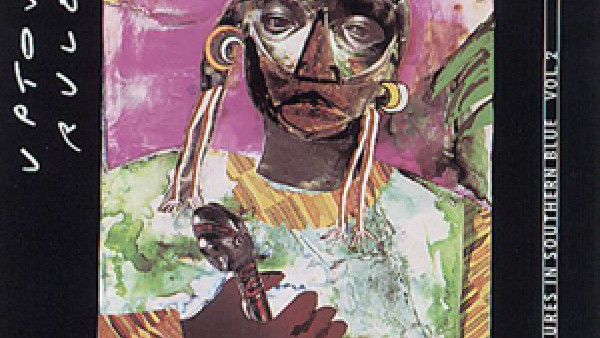Psalm 26 represents my first attempt to write for more than two horns

Album: Uptown Ruler (Soul Gestures In Southern Blue Vol. 2)
Because I spent my high school years largely playing funk, jazz funk, and some of my father and drummer James Black’s music, my understanding of the blues and American vernacular music came through whatever was to be found in these styles and the few other gigs I would stumble upon from time to time: church gigs that required knowledge of hymns like The Old Rugged Cross, clubs that required songs like Blueberry Hill, parades that required songs like Panama or Lil Liza Jane. I knew a few of these tunes and also understood the effect of them on audiences, but it couldn’t compare (in my mind at that time) to the way our funk band drove large audiences crazy with that driving backbeat, so I attributed this lack of impact on the music being old and in someway (not expressed but felt) less.
As was the custom at that time, I didn’t place the blues and vernacular music in the center of my musical worldview. Funny because in many other ways: food, language, dance, storytelling, etc., the vernacular was primary. And even though we played the Joe Avery second line after every gig, music was fun, malleable and viewed mainly for its entertainment value not nourishment. For my natural knowledge, I was blessed to be born in New Orleans and to my father because, I was the typical black kid of my time who lived in the neighborhood and knew virtually nothing about any tradition that was not lived everyday. Thank the Lord for banjoist Danny Barker, but anything that required study or the passing down of knowledge was not a part of this experience.
This was, in part, because the Civil Rights Movement created a sense amongst us (youngsters) that our history before the 60’s was all degradation and something of which to be ashamed. My father and mother, of course, didn’t believe that, but I was too generational to learn all that I could have from them. We were too busy being hip in a 70’s way: Afros, platform shoes, bell bottoms, psychedelic posters, black lights yeah all of it. As a matter of fact, I don’t think I even realized that our parents were PEOPLE separate from being our parents until my father invited me at 16 to get out of their house for being too mouthy with my momma because “he knew her long before he knew me, and would know her long after I was gone.” That prophetic revelation brought me to my senses.
Moving to New York, playing with Art Blakey, touring with Herbie Hancock’s Quartet, meeting many musicians and thinkers from Steve Turre’ and Walter Davis to Stanley Crouch and Ralph Ellison, reading Albert Murray’s Stomping the Blues, interfacing with Romare Bearden and forming my own group forced me to put my experience in a clearer perspective.
I took the 80’s to learn how to play on chord progressions, play in different meters, develop my tone, swing on different tempos, play in different moods, lead a band, and hear and compose the blues the way I wanted to hear it and write it. In 1981, I started that decade writing a 20 bar blues entitled Twilight which features a Charleston vamp, a shuffle, a 4/4 swing solo section and contrapuntal improvisation interspersed with written parts for Branford and me. This music is influenced by Miles Davis’ 1960’s group, as much as we could understand of it at that time (which wasn’t much). By 1989, we would be recording the Majesty of the Blues. It is in 6/4, modulates into several keys, features a shifting harmonic pattern and groove, uses plunger mutes and vocal effects from earlier eras in a contemporary way. It is very original music and achieves its objective of extending the sound and feeling of the blues into a wholly non-traditional setting without abandoning the substance and reality of the form.
Today, I would like to offer to you 1987’s Psalm 26 /Uptown Ruler. Psalm 26 represents my first attempt to write for more than two horns. Todd Williams and I play tenor saxophone and trumpet, but Marcus Roberts plays alto saxophone instead of piano, Reginald Veal plays trombone instead of bass, and Herlin plays bass instead of drums. I remember Veal taped the spots that Herlin had to finger with the left hand in order to make the chord changes. Just the image of Herlin laughing about the intonation and the way he figured out how to do it makes me laugh out loud. Those are my brothers. I love them. We had such a fantastic time and serious dealing with music and life…..and all with Crescent City soul.
This Psalm spoke about integrity which I still believe in (and fall short of). It features a way of part writing that combines the blues with traditional harmony of J.S. Bach. I was so inspired, as a sophomore in high school, by my theory teacher Dr. Bert Braud at the New Orleans Center for the Creative Arts, that I analyzed all 350 or so of Bach’s chorales to which he said,“That’s a good start.”
The Psalm goes right into Uptown Ruler which is in 5/4 and 4/4. Both pieces together form a sort of New Orleans funereal duo with the Psalm being serious and emotional and The Uptown Ruler being secular and combining swing, the New Orleans funk and the modern jazz of my father and James Black (who was writing in 5 in the 50’s). Mythically, the Uptown Ruler is equally at home in the places of higher learning and the halls of erudition and scholarship, as he is in the back rooms of lower discourse and in the houses of ill repute.
Wynton

